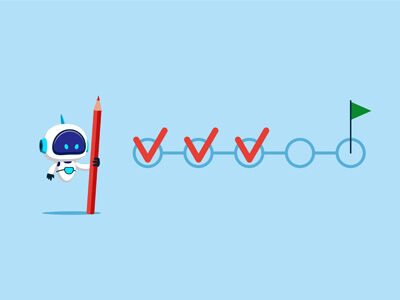Technological advancements are revolutionizing workplaces, and generative AI (GenAI) is a pivotal player in this current transformation. Its rapid adoption is evident with milestones like ChatGPT amassing more than 100 million monthly users in record time. This surge underscores a burgeoning trend across industries—ranging from professional services to health care and finance—where billions are invested in leveraging AI capabilities. While the narrative often focuses on organizational benefits, the implications for individual knowledge workers are equally profound and merit a deeper exploration.
In their recent article for Harvard Business Review, MIT Sloan Senior Lecturer and Principal Research Scientist George Westerman and Maryam Alavi, Professor of IT Management at Georgia Tech’s Scheller College of Business, suggest that knowledge workers leverage free GenAI tools already available on the web to reduce their cognitive load while also boosting their cognitive abilities and learning effectiveness.
Knowledge work, characterized by cognitive processing and information handling to generate value, is a domain where AI’s impact is particularly pronounced. This work spectrum includes both structured tasks (e.g., payroll processing) and unstructured ones (like conflict resolution). Generative AI is shifting the paradigm, encroaching into areas once exclusive to human intellect. This shift, while daunting, presents opportunities for knowledge workers to optimize efficiency and engage in more meaningful tasks.
Here are three ways in which AI can augment knowledge work:
1. Reducing cognitive load: Automating structured tasks allows workers to focus on complex, value-added activities. For instance, attorneys use AI for routine legal drafting, freeing up time for intricate legal analysis. Similarly, in marketing and finance, AI-driven content generation and information analysis are enabling professionals to concentrate on strategic aspects.
2. Enhancing cognitive capabilities: AI tools can bolster critical thinking and creativity. Research indicates that AI engagement broadens the spectrum of questions and ideas, fostering innovation. Generative AI also aids in knowledge sharing, making organizational wisdom more accessible, as evidenced by firms like Morgan Stanley leveraging AI for knowledge dissemination among advisors.
3. Facilitating learning and development: AI is transforming learning methods, offering personalized feedback and simulation-based practice environments. For example, language learning platforms like Duolingo have integrated AI for interactive exercises, significantly enhancing the learning experience.
Each person’s GenAI explorations can generate innovations that could have great value. And yet, some of those experiments may stray into dangerous territory by creating errors, breaking regulations, making biased decisions, or releasing private information to the public. Here is how to can empower your teams to use AI responsibly:
- Establish policies and responsibilities: Set clear guidelines on the safe and ethical use of AI, emphasizing data privacy and accuracy. Educate your team on the potential biases in AI and methods to counteract them.
- Promote experimentation and share innovations: Encourage your team to explore AI tools and share their findings. This culture of shared learning can lead to innovative practices and risk awareness.
- Celebrate successes: Acknowledge and celebrate innovative uses of AI within your team. This not only fosters a culture of innovation but also encourages others to adopt best practices.
The integration of generative AI into knowledge work is not a futuristic concept but a present reality. For senior executives, the challenge lies not in resisting this change but in harnessing its potential to enhance productivity, creativity, and job satisfaction among teams. The journey with AI is a continual learning process, one that requires proactive engagement and adaptation. The time to embark on this journey is now, ensuring that your organization stays at the forefront of this technological revolution.
Westerman teaches in the Executive Education course Essential IT for Non-IT Executives.
You may also be interested in our on-demand Generative AI Business Sprint and the new in-person course Leading the AI-Driven Organization. To explore a unique and exciting application of AI, we also invite you to explore the forthcoming Negotiation Strategy Sprint: AI-Accelerated Learning (Pilot) and Negotiation Essentials Sprint: AI-Accelerated Learning (Pilot).








